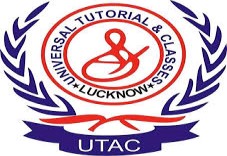Formal education is important. It’s how we get degrees, titles, and respect from society. The degree we earn speaks a lot about us. Informal education, however, is even more important. By definition, informal education is the spontaneous process of obtaining knowledge about the things we’re surrounded with. People obtain this kind of education through exploration, experiences, and conversations.
Formal education, on the other hand, is characterized with boring lectures and textbooks. The teacher gives the lecture, and the students listen, ask questions, and respond to the teacher’s questions. Is that really the case?
In the modern education, the line between formal and informal is blurred. The classroom is no longer the same. Today’s educators are doing their best to awaken students’ interests through conversations that are far from formal. Instead of getting boring lectures, the students are finally getting the type of education they deserve.
Advantages of Informal Education
The greatest advantage of informal learning is the freedom to explore. When you are not bound by the limits of formal education and you’re not expected to stay in the box determined by lessons and chapters, you are free to know anything. You’re inspired to learn everything. With that freedom, the student is encouraged to maintain the inborn curiosity, which people tend to lose as they get older.
The current generations, which are getting exposed to informal learning, are expected to keep that hunger for knowledge. However, we’ll have to wait and see if that happens. Until then, we have the proven benefits to explore. Here are the greatest benefits of informal learning that are changing the face of modern education:
- The informal approach makes learning easier
People have access to any piece of information. If a student wants to know how the Universe works before they get to that point in their formal educational journey, they can simply find an online lesson regarding that question. Moreover, the slightly less formal classroom setting allows the students to ask questions outside the curriculum. When a teacher notices interests for certain topics, they can provide educational materials or devote a special lecture on the matter.
Teachers have a responsibility to educate students how to use the Internet. Not all online sources are safe and reliable. That’s one of the greatest dangers that informal education brings: getting false information. However, when the teacher takes time to explain how the students should use the Internet and check the relevance of the information they get, they can overcome this advantage. The importance of teachers and leaders is not to be underestimated. Educators still have a crucial role in informal education.
- Informal learning leads to less test anxiety
This advantage is huge, but the teachers and students don’t experience it vividly. It fits the title, since it’s one of the unseen advantages of informal learning. We live in a test-driven culture that constantly expects us to perform better than the rest. Formal education only enhances that aspect of living. Examinations and tests lead many students into an anxious state.
With informal education, the students are inspired to learn for the sake of learning. They are obtaining knowledge because they want to know more. That approach defies the biggest disadvantage of formal education: learning for the sake of getting good grades. When students are taught to gain and show their knowledge in a more relaxed environment, the test anxiety is kept at bay.
- Informal education motivates learners to learn more
When the educational process is engaging, the learners are curious and attentive. Think of a teacher who shows a presentation with breathtaking images from the Universe. The students will wonder what they are seeing. They will want to get answers. They will be asking questions. Their hunger for knowledge won’t be limited by the information they get from the textbook. They will be motivated to learn more.
When the education is less formal, the students are inspired to learn anywhere, any time. When they get the desire to know something, they immediately want to get their knowledge. Their teachers and parents advise them to take notes or use the Internet. That’s a great proof of how we can make learning spontaneous and fun. We are teaching students to spend a lifetime in learning.
- Both students and educators are expanding their horizons
Neither students nor educators can afford to resist the technological and cultural evolution. New trends are conquering the world by the day, and we are lucky to see that the educational system is finally opening up to them. We are still not there quite yet. Formal education, especially in public schools, is stuck to the old forms of learning and testing.
Slowly, but surely, the educational system is giving up the full control over students’ knowledge and values the role of informal learning. The new system is going to produce more creative students who think for themselves. Can you think of a greater advantage?
- Lack of organization is more beneficial than we realize
In informal education, there are no pre-set guidelines. There’s no prescribed program for teaching a child how to brush their teeth. There’s no recipe for learning the alphabet. As the educational system is getting more informal, there’s less and less organization in it.
Think about it: what frightens students the most? Formulas, definitions, and memorizing things ‘by heart’. Students are no longer required to know something so well that they can recite it in their sleep. Through the less structured informal education, they are focused not on memorizing, but on understanding.
- Informal learning creates a habit for informal spreading of knowledge
When someone gains a lot of knowledge through informal learning, they are willing to share it in creative ways. Blogging, online courses, and creative curriculums are only few of the many opportunities these people have. They have the potential to become the educators of the future; the ones who will move the system in the right direction.
Since informal learning happens more naturally throughout the day, people from all walks of life are not intimidated to share what they know. They are making contributions to a huge community of learners. Taking and giving back – that’s what the world of education is going to become if we nurture informal learning.
The World Is Changing. Education Follows the Pace
The formal educational system is characterized with boredom, test anxiety, and procrastination. As the education is getting more informal by the day, we are seeing less of these disadvantages and more of the advantages the changes bring.
The educational system is never going to be completely informal. Children will still go to school, and teachers will still have curriculums to take care of. However, the framework is getting more flexible and the students are encouraged to explore. The benefits of informal learning are not limited to primary education and high school. They are extended to colleges, universities, and organizations. Through informal education, people become what their human nature determines them to be: curious individuals with everlasting hunger for knowledge.









